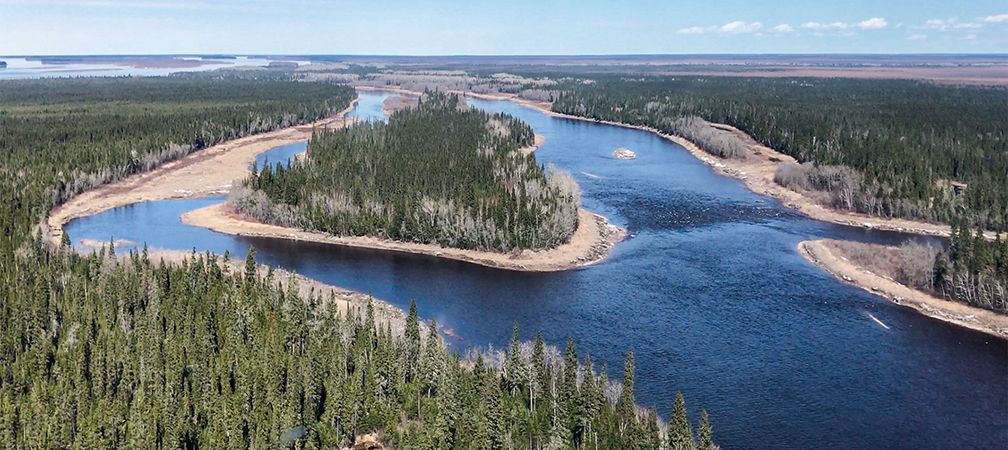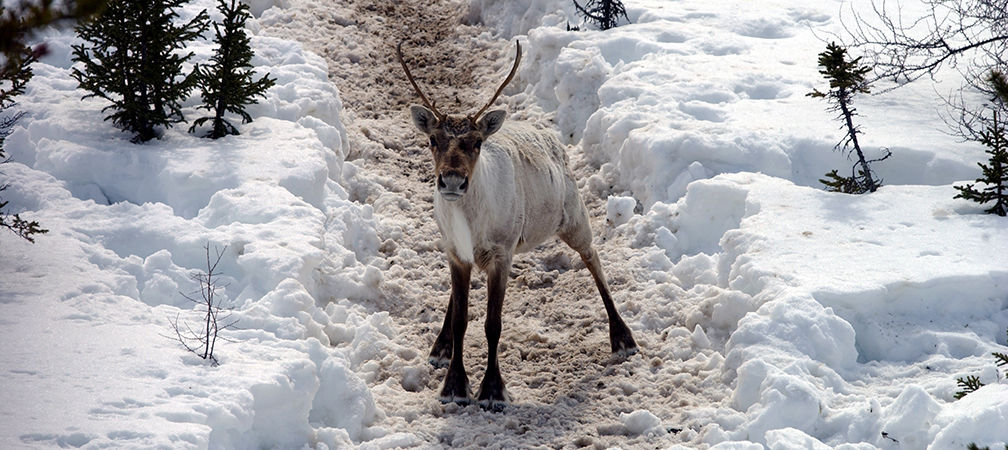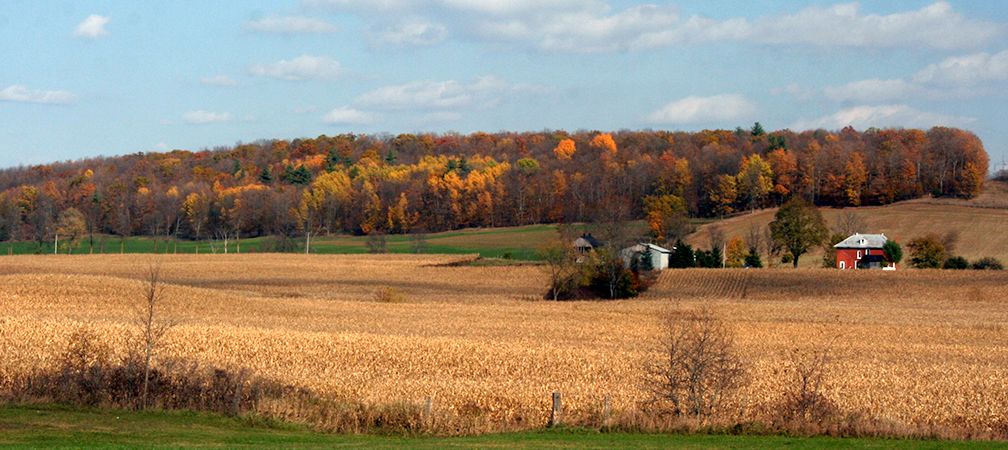Ontario Nature Blog
Receive email alerts about breaking conservation
and environmental news.
© Lora Denis
February 24, 2022–Anne Bell
Campaigns and advocacy•Protected Places•Species at Risk•Stewardship and restoration
On June 2, 2022, Ontarians will head to the polls to elect our next provincial government. As citizens, we have a responsibility to ensure that nature conservation is a major election issue. Candidates and political leaders must hear from all Ontarians demanding clear commitments and action plans to effectively address ongoing biodiversity loss and the devastating impacts of climate change.
As election campaigns get underway, you will have various opportunities to make your voice heard. Be ready when candidates come knocking on your door, when local media cover the upcoming election and for all-candidate meetings. You may even find these issues spark good discussions with those around you as they consider their vote.
Here are three topics and questions you could raise:

With other leading nations around the world, Canada has pledged to protect at least 25 percent of our lands and waters by 2025 and 30 percent by 2030. Ontario must do its part to achieve these targets. Increasingly recognized as vital nature-based solutions to climate change, protected areas store carbon, mitigate flooding and drought, and provide crucial refuges for wildlife. They also offer much-needed access to the outdoors, which is essential to our physical and mental health. When co-created and managed with Indigenous peoples, protected areas can sustain and strengthen Indigenous knowledge systems and cultural practices, helping to advance reconciliation. Let’s remind political candidates that we care deeply about protected areas.
Questions for candidates:

Faced with an accelerating, worldwide extinction crisis, successive Ontario governments have failed miserably to respond as needed. At every turn, they have chosen to unravel protections for species at risk, as exemplified recently with ruinous amendments to the Endangered Species Act, 2007 (ESA) in 2019. These amendments created numerous loopholes for harmful activities and undermined the very cornerstones of the law: science-based listing (including Indigenous Traditional Knowledge), mandatory habitat protection, and legislated timelines for planning and reporting. Candidates must abide by their duty to protect our most vulnerable plants and animals, and their habitats. They’ll be interested to know that biodiversity loss has been ranked as a top-five risk to economies over the next decade because of the economic value of the benefits that nature provides.
Questions for candidates:

Ontarians increasingly understand the seriousness of the biodiversity and climate crises that we face. Yet, despite public outcry demanding action on both fronts, the provincial government has weakened environmental laws and policies, leaving us and future generations increasingly vulnerable to the adverse impacts of environmental degradation. Twice in recent years the government has broken the law by violating public consultation requirements under the Environmental Bill of Rights, 1993 (EBR). Minister’s Zoning Orders (MZOs), which sidestep public consultation and override policies intended to protect natural heritage and farmland, are another prime example of the government’s disregard for democratic process.
Questions for candidates:
A vote for nature is a vote for a livable planet for our children and grandchildren. It’s a vote for the programs, laws, and policies that protect our collective well-being and quality of life. It’s putting our long-term interests ahead of unsustainable, short-term profiteering. It’s your chance to be heard.
This content is available as a brochure that you can print or save as a PDF. Use the control panel on the left side of the page.
On June 2, 2022, we have an opportunity to elect biodiversity and climate leaders. The next Government of Ontario will make a generational difference. Raise your voice for biodiversity protection and climate action.

Gananoque Lake Nature Reserve © Smera Sukumar
Always appreciate the info provided in your blog. I have the 3 questions ready, printed-out and waiting for my chance to utilize them. Many thanks, Anne.
Thanks Tom. Anne reached out directly.
Thanks for asking Mara Glebovs. Here’s a brochure with this content: https://view.publitas.com/on-nature/vote-for-nature. You can print or download a PDF using the control panel on the left side of the page.
Tiny is in a battle with 2 Gravel pits that sit on French’s Hill over the Alliston Aquifer – they draw in excess of 1 million Lt. of water a day to wash the gravel. There is a study going on to verify that the particular water is the most pristine water in the world. We will have a demonstration at Queen’s Park on March22 to make it clear that the pits should be closed and therefore not be digging down to the water table thereby removing the filtration blanket that produces the remarkably pure water. People come for miles to draw water from an artesian well from this aquifer just north of Elvale Ontario. The MPP in this vicinity is Jill Dunlop.
In your service,
Gibb Wishart
On does a great job of pointing out to me things that need to be protected. With World population growing at such a large rate it becomes more difficult to protect these things
Your blog is very well done. The big questions you put out there are excellent, and they should make us think more about our place and how we are all impacting our environment. We need to give nature a chance to recover from all the destruction through progress?? by electing people who care and who will pay attention to our questions.
The MPP from Brockville, Steve Clark? wants to pave over any wetlands. He deserves to have some literature sent his way
Could you possibly make the issues and the questions for the candidates available in a printable format, e.g., a PDF file?
Thanks,
Mara
Great summation Anne! Unfortunately, at this time, it’s harder than ever to get someone’s attention, even for something as straightforward as this. My guess is that the Green Party of Ontario has the same problem. Anyway, may I suggest a relatively quick campaign to collect enough money from other friends of the earth, in order to conduct a Billboard campaign which would put these ideas into the minds of the voting public. If the Billboard’s can be made to be edgy or controversial, even better. John and Yoko’s “war is over if you want it” billboard campaign was quite memorable, and shows how effective this sort of messaging could be, if implemented well.
Thank you for this helpful blog on voting topics
and your great work for Ontario nature.
Green space needs to be preserved
To Anne Bell.
Hi Anne. I’d be interested in an introductory call with someone from Ontario Nature. I’m a member of the Wilderness Canoe Association, and am the Conservation Committee chair of that organization. I think it would be useful to establish contact with Ontario Nature on behalf of the WCA, to both discuss ON activities of potential interest to WCA members, and also to see if there might be specific opportunities to collaborate over time. (By the way, I personally support the valuable efforts of ON, and am involved with some other projects that relate to ON priorities.)
Thanks.
Regards, Tom